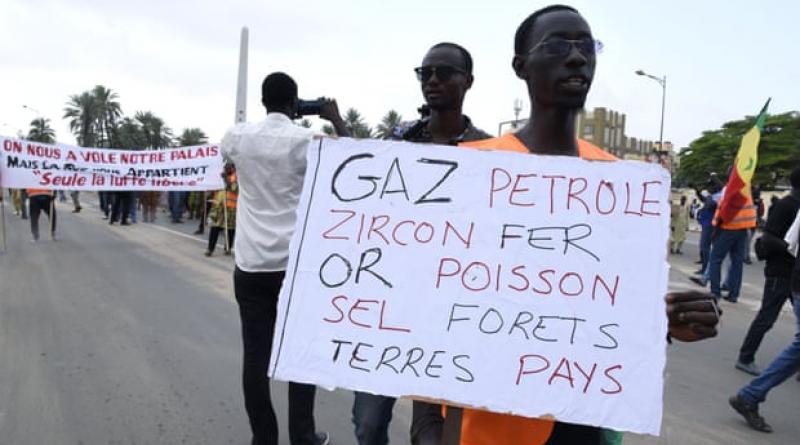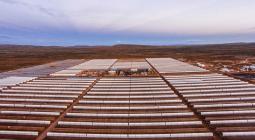UK taxpayers funding African fossil fuel projects worth $750m.

Watchdog reveals huge sum ploughed into ‘world’s dirtiest fossil fuels’ despite climate vow
UK taxpayer funds totalling $750m (£577m) have been invested in new fossil fuel projects in developing African countries despite the government’s public commitment to tackling the climate crisis, according to an international watchdog.
Global Witness found that a London-based investment group raised $1bn from the UK government over 16 years and spent three-quarters of this supporting oil and gas projects in some of Africa’s poorest countries.
The Private Infrastructure Development Group (PIDG), which relies on the UK taxpayer for two-thirds of its funding, committed $750m to fossil fuel projects between 2002 and 2018, including recent investments in heavy fuel oil power plants in Senegal and Mali.
Since then, the group’s investments have included $24m for a gas plant in Togo and $31m for a gas plant expansion project in Ivory Coast.
Adam McGibbon, a campaigner at Global Witness, said “not a penny of public money” should be used on fossil fuel infrastructure.
“The British public will quite rightly be appalled to know that their tax money is being used to finance some of the world’s dirtiest fossil fuels, ultimately contributing to climate change,” he said.
“It flies in the face of claims by the UK government, ahead of hosting a major UN climate summit this year, that the UK is a global leader in fighting climate change.”
The report is likely to reignite concerns that UK international aid designed to help support infrastructure in developing countries is instead increasing reliance of those states on oil and gas.
Last year the government was taken to task by the environmental audit committee for sending billions of pounds overseas to help build fossil fuel power plants while claiming a climate victory on home soil.
Global Witness said the government should immediately end all fossil fuel investments and commit to using UK taxpayer money solely to fund clean energy.
A spokeswoman for the PIDG said the fund was “acutely aware that infrastructure development has the potential to lock in future carbon emissions patterns” and that the countries it invested in were “the most vulnerable to the impacts of climate change”.
The fund has said it would prioritise renewable energy projects in its investment plans, and had already invested a total of $711m in renewable energy infrastructure in recent years. It has also banned investments in coal, to align with global commitments made through the Paris agreement on climate change.
But the investor would continue to use UK taxpayer funds to support oil and gas infrastructure in countries where the need for electricity is urgent, the spokeswoman added.
The Global Witness report says: “It is difficult to see how supporting further fossil fuel projects is in any way in line with Paris agreement commitments. Fossil fuels hinder, rather than help, development … there is no longer any justification for supporting fossil fuel power generation with aid.”
A Department for International Development spokesman said: “We know developing countries rely on energy from a range of sources and the UK can help them move towards clean energy. UK aid support to PIDG is helping achieve this, prioritising investments which mitigate the devastating impacts of climate change in developing countries, and help them adapt.”
The UK’s commitment to supporting oil and gas projects in Africa was at the heart of the UK-Africa investment summit last month. Boris Johnson told delegates “not another penny of UK taxpayers’ money” would be invested in coal, adding that UK companies should help African countries “extract and use oil and gas in the cleanest, greenest way possible”.
The Guardian revealed that more than 90% of the £2bn in energy deals struck at the inaugural UK-Africa summit last month were for fossil fuels, despite the government’s commitment to “support African countries in their transition to cleaner energy”.
The Global Witness report says: “It is difficult to see how supporting further fossil fuel projects is in any way in line with Paris agreement commitments. Fossil fuels hinder, rather than help, development … there is no longer any justification for supporting fossil fuel power generation with aid.”
A Department for International Development spokesman said: “We know developing countries rely on energy from a range of sources and the UK can help them move towards clean energy. UK aid support to PIDG is helping achieve this, prioritising investments which mitigate the devastating impacts of climate change in developing countries, and help them adapt.”
The UK’s commitment to supporting oil and gas projects in Africa was at the heart of the UK-Africa investment summit last month. Boris Johnson told delegates “not another penny of UK taxpayers’ money” would be invested in coal, adding that UK companies should help African countries “extract and use oil and gas in the cleanest, greenest way possible”.
The Guardian revealed that more than 90% of the £2bn in energy deals struck at the inaugural UK-Africa summit last month were for fossil fuels, despite the government’s commitment to “support African countries in their transition to cleaner energy”.
*Title Photo: Protesters hold banners calling for greater transparency in the oil industry at a march in Dakar, Senegal. Photograph: Seyllou/AFP/Getty
6 February 2020
The Guardian




